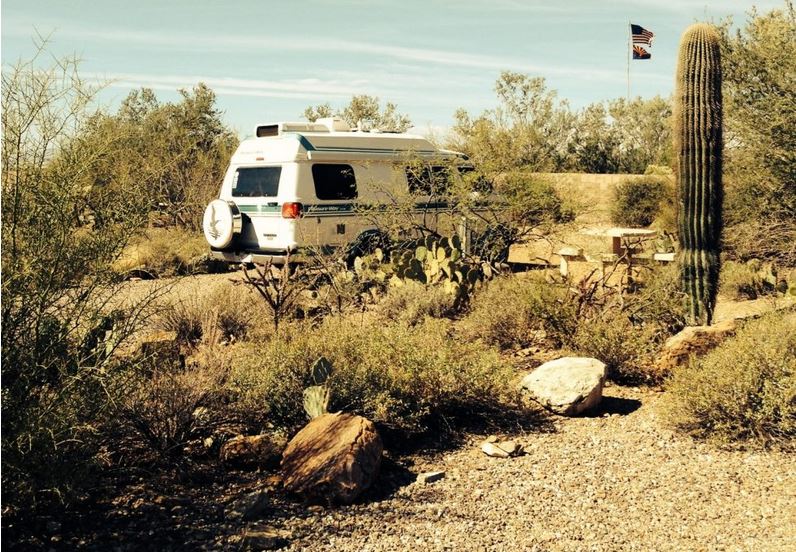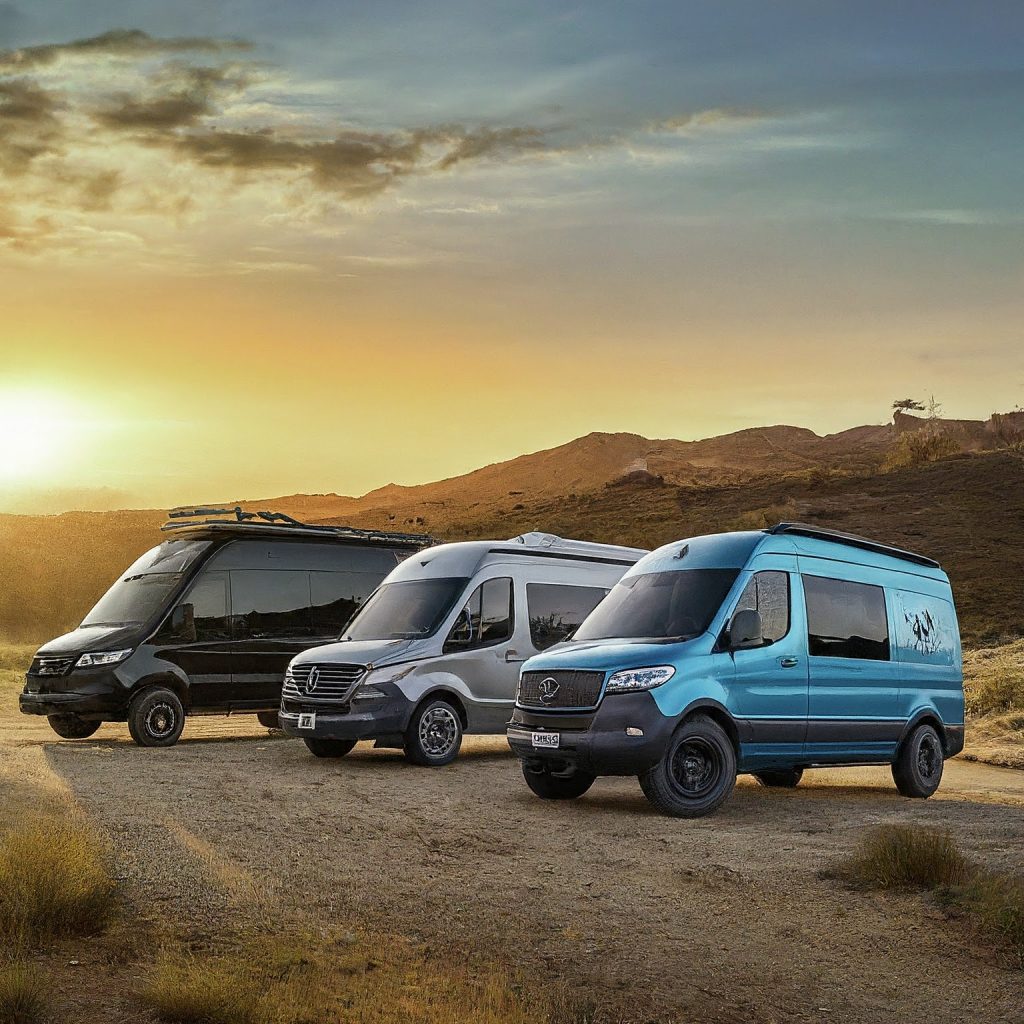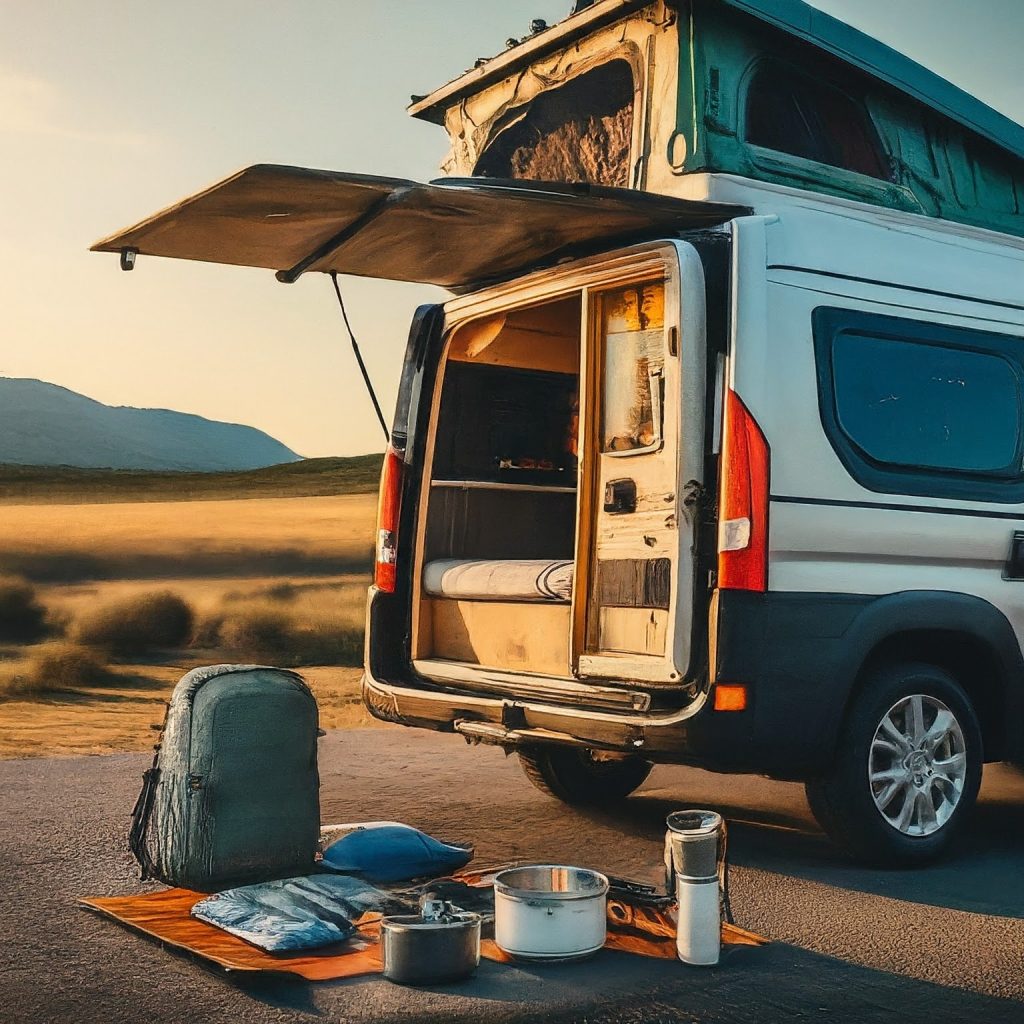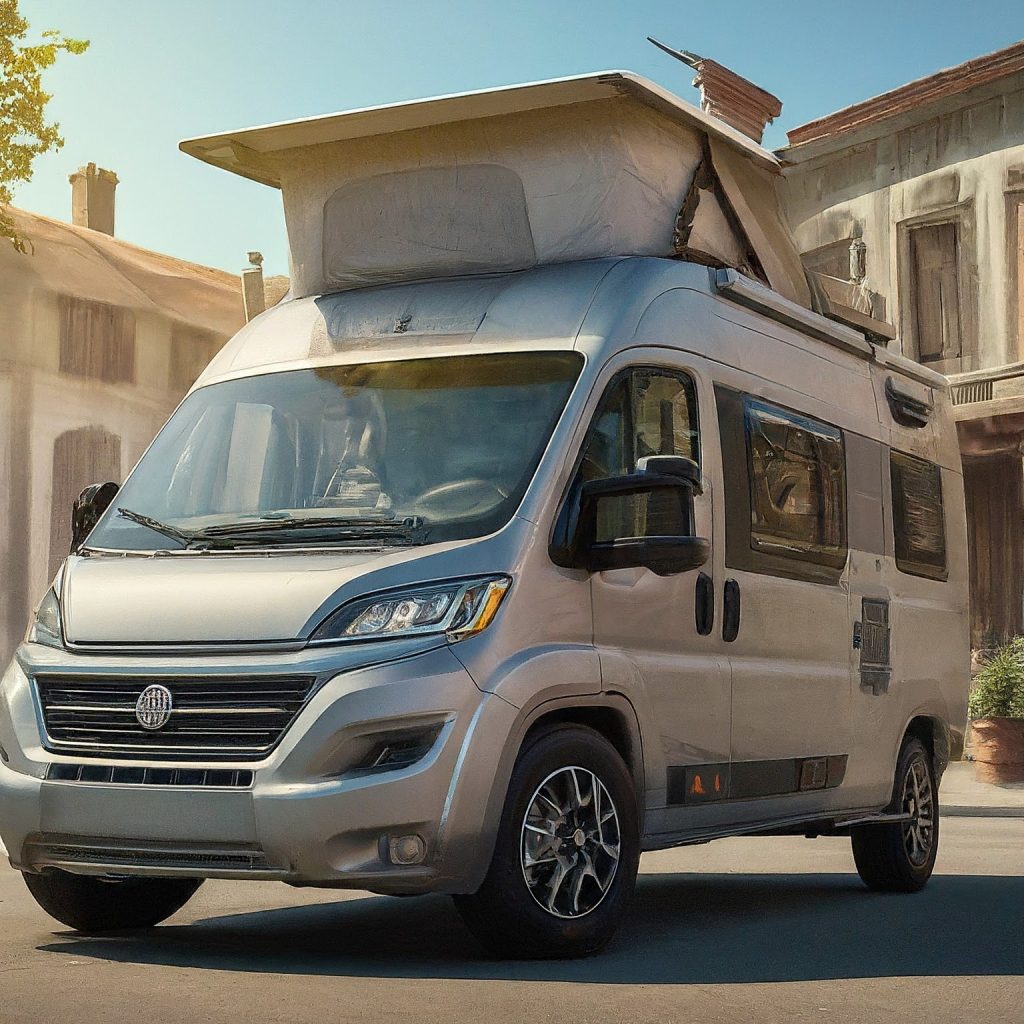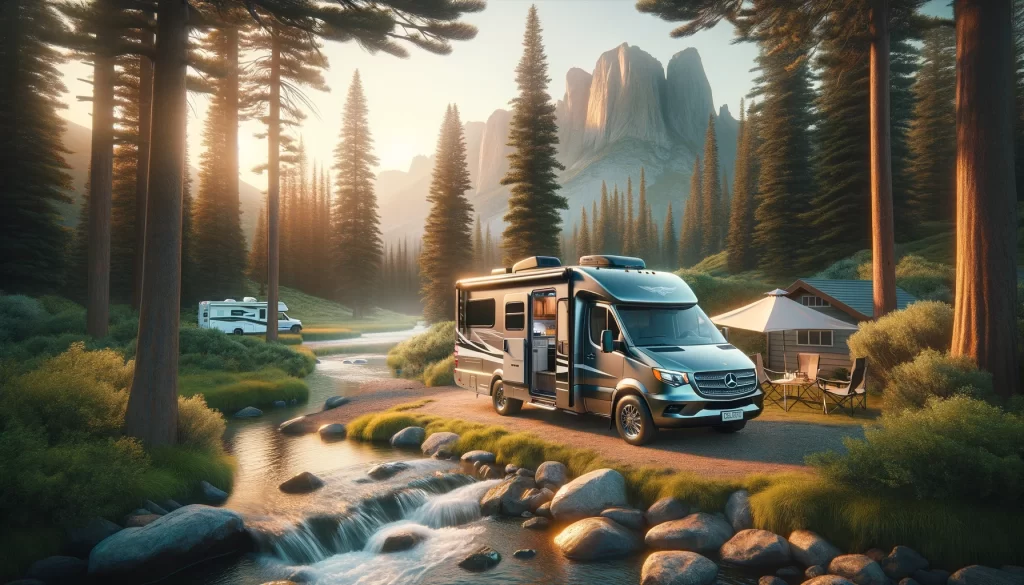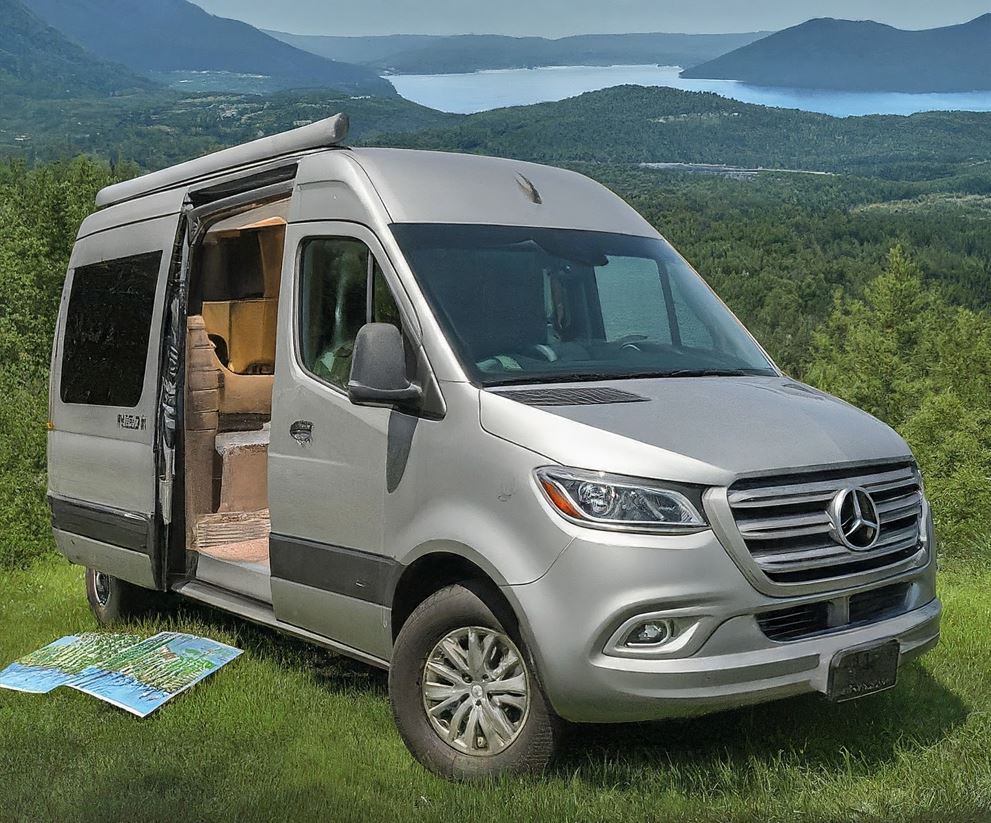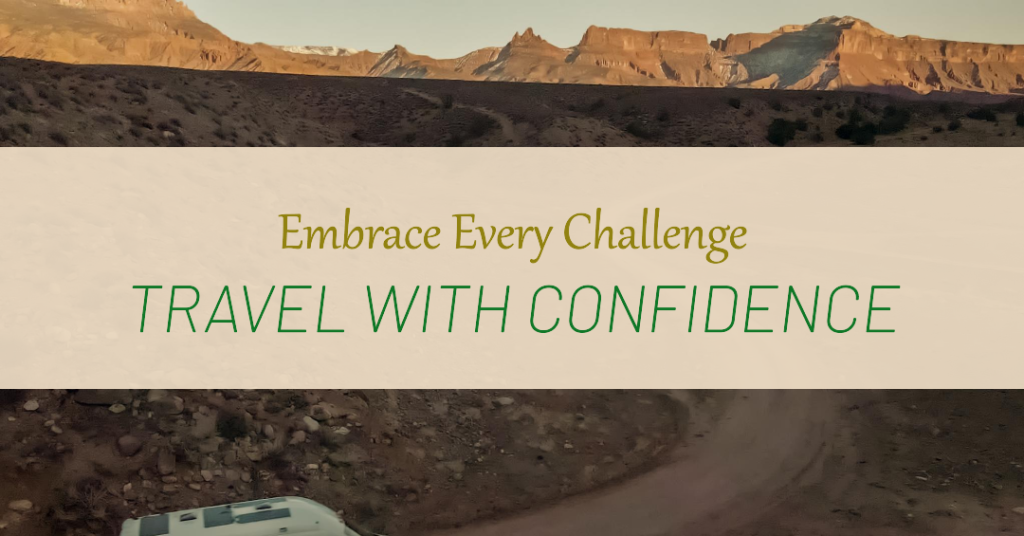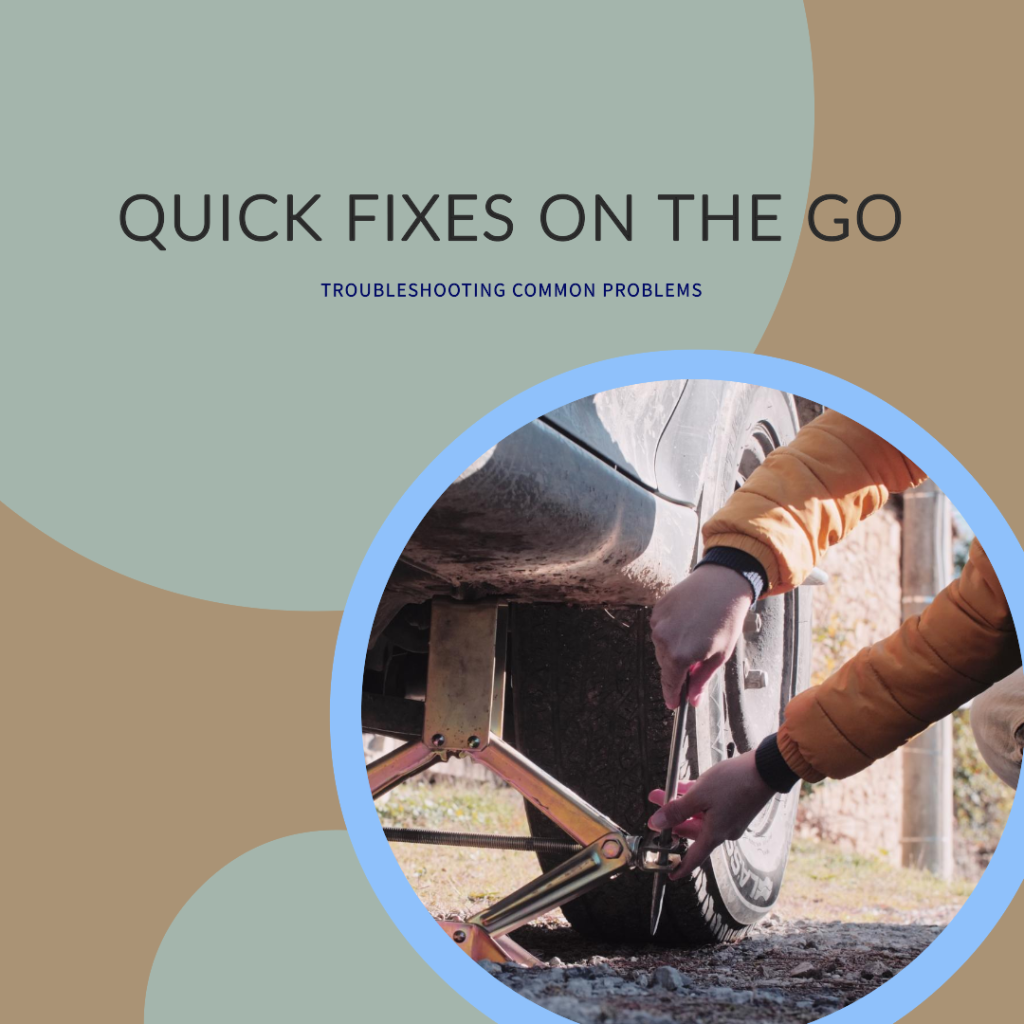Your Ultimate Guide to Compact RVing
Unleash your wanderlust and explore hidden gems with the agility and comfort of a Class B RV! This comprehensive guide, your one-stop shop for all things Class B RVing, empowers both seasoned nomads and curious newcomers to hit the road with confidence. Imagine spontaneous detours through charming towns, cozy nights under starlit skies, and the freedom to go wherever your adventurous spirit takes you – that’s the magic of Class B RV travel. Dive in and discover essential tips, expert advice, and inspiring ideas to turn your dream trip into reality.or many adventure seekers, Class B RVs are like a magic key unlocking a world of freedom and exploration. Unlike their larger counterparts, Class B RVs boast incredible maneuverability, allowing you to navigate charming towns, wind down scenic byways, and discover hidden gems off the beaten path. Say goodbye to gas station anxiety with their impressive fuel efficiency, putting more money in your pocket for unforgettable experiences.
Whether you’re a seasoned traveler yearning for a simpler, more nimble travel companion or a newcomer seeking an accessible RV adventure, Class B RVs deliver. Don’t compromise on comfort – these meticulously designed vans offer everything you need, from a well-equipped kitchen for culinary creations to a cozy sleeping area for restful nights under the stars. As adventure photographer Sarah Jones once said, “My Class B RV has become my adventure mobile, taking me to breathtaking landscapes I never thought I could reach.
Class B RV Comparison Table
| Feature | Compact Camper Vans | Mid-Size Conversion Vans | Large Adventure Vans |
|---|---|---|---|
| Size | Smallest (16-18 ft) | Medium (18-20 ft) | Largest (20-23 ft) |
| Maneuverability | Excellent – nimble for navigating cities and narrow roads | Good – comfortable driving experience | Moderate – requires more care on tight maneuvers |
| Sleeping Capacity | 2 | 2-4 | 4-6 |
| Fuel Efficiency | Best – highest MPG | Moderate | Least – lower MPG due to size and weight |
| Storage Space | Limited – ideal for minimalists | Moderate – suitable for gear and essentials | Ample – comfortable for extended expeditions |
| Features & Amenities | Basic – kitchenette, sleeping area | More options – pop-up roofs, fixed beds, additional storage | Most options – full kitchens, bathrooms, off-grid capabilities |
| Budget | Most affordable | Moderate | Highest price point |
| Ideal for: | Solo travelers, couples, short trips | Couples, families, weekend getaways | Frequent travelers, off-grid adventures, large groups |
The road awaits, and your nimble Class B RV is the key to unlocking countless adventures. But before you hit the open highway, choosing the right van is crucial. Don’t worry, this guide will equip you with the essential factors to consider, ensuring your Class B perfectly complements your travel dreams and budget.
Size & Style:
- Compact Camper Vans: Ideal for solo adventurers or couples, these agile companions offer excellent fuel efficiency and navigate charming towns with ease. Think Dodge ProMaster or Mercedes-Benz Metris.
- Mid-Size Conversion Vans: Perfect for families or small groups, these vans provide more space and flexibility with pop-up roofs or fixed beds. Explore options like the Winnebago Solis or Pleasure-Way Lexor TS.
- Large Adventure Vans: Designed for extended explorations, these powerhouses boast off-road capabilities and ample amenities. Consider the Mercedes-Benz Sprinter 4×4 or the Leisure Travel Vans Serenity.
Think about your travel style: Will you be conquering off-the-beaten-path destinations or prioritizing cozy nights under the stars? How much space do you need for gear and comfort?
Features & Budget:
- Basic Vans: Budget-friendly options with essential amenities like a kitchenette and sleeping area. Consider the Ford Transit Connect or the Ram ProMaster City.
- Adventure-Ready Vans: Equipped for off-grid adventures with solar panels, roof racks, and rugged suspension. Explore the Winnebago Revel or the Sportsmobile Independence.
- Luxury Vans: Pamper yourself with premium finishes, top-of-the-line appliances, and spacious living areas. Look at the Airstream Interstate or the Mercedes-Benz Sprinter Executive.
Remember, your budget plays a key role. Consider upfront costs, potential long-term savings, and how your chosen features align with your travel plans.
Rent or Buy?
Whether renting or buying depends on your individual needs. Consider factors like:
- Trip Duration: Short trips or trying out the lifestyle? Renting might be ideal. Frequent or extended adventures? Buying could offer savings.
- Budget: Lower upfront cost for renting, but monthly/weekly expenses add up. Buying requires a higher initial investment but offers long-term ownership.
- Frequency of Use: Occasional use? Renting might be more cost-effective. Regular travelers might benefit from buying.
Ultimately, the choice is yours! Research, compare options, and don’t be afraid to ask questions.
Pack Smart, Live Large: Class B RV Essentials
Hitting the road in your Class B RV is all about freedom and adventure, but with limited space, packing efficiently is key. Fear not! This guide equips you with essential items and space-saving hacks to maximize your living space and minimize clutter.
Essentials Checklist: Adapt to your personal style.
Clothing:
- Lightweight, quick-drying clothes: Opt for versatile pieces that can be layered for different weather conditions.
- Comfortable shoes: Pack for your activities, whether it’s hiking boots for exploring trails or sandals for kicking back at the campsite.
- Rain gear: Be prepared for unexpected downpours with a waterproof jacket and pants.
Kitchen:
- Compact cookware: Choose pots and pans that nestle together or multi-function options like a pot that doubles as a frying pan.
- Reusable dishes and utensils: Ditch disposables and opt for lightweight, reusable alternatives.
- Spices and condiments: Add flavor to your meals with your favorite spices and sauces.
- Non-perishable food staples: Stock up on items like pasta, rice, and canned goods for quick and easy meals.
Hygiene:
- Biodegradable toiletries: Minimize your environmental impact with eco-friendly options.
- Quick-drying towel: Save space with a microfiber towel that dries quickly.
- First-aid kit: Be prepared for minor injuries with essential supplies.
- Medications: Pack any medications you regularly take.
Sleeping:
- Breathable bedding: Ensure comfortable sleep with lightweight sheets and blankets.
- Lightweight pillows: Find compact pillows that offer good support.
- Compact sleeping bags (for colder climates): Choose a sleeping bag with the appropriate temperature rating for your intended destinations.
RV Gear:
- Leveling blocks and tire wedges: Ensure your van sits level for a comfortable stay.
- Extension cords and hoses: Connect to campgrounds and access water sources.
- Multi-tool: Be prepared for minor repairs with a versatile tool kit.
- Emergency kit: Pack essential items for unexpected situations.
Space-Saving Savvy:
- Multi-tasking marvels: Look for items that serve multiple purposes, like a travel mug that doubles as a water bottle.
- Roll it up: Embrace the art of rolling clothes to save space and prevent wrinkles.
- Compression companions: Utilize compression bags to shrink bulky items like blankets and pillows.
- Downloadable Checklists: Find comprehensive, categorized checklists online to ensure you don’t miss anything.
Remember, packing light is about choosing the right gear and using clever organization techniques. This guide and the downloadable checklists will help you pack smart and live large on your Class B RV adventure!
Taking the Wheel: Adventure Awaits
Get ready to navigate the open road with confidence! While driving basics apply, Class B RVs offer unique dynamics. Their nimble size allows you to conquer winding roads and squeeze into charming town centers, but it also requires adjusting your driving approach. Master blind spots, anticipate wind sway, and hone your parking skills – practice makes perfect for a smooth journey.
Unique Destinations for Your B:
- National Parks & Monuments: Embrace the grandeur of Yosemite, Yellowstone, or Zion in your compact camper, accessing scenic overlooks and hidden trails often off-limits to larger RVs.
- Coastal Charm: Cruise the Pacific Coast Highway, park directly on the beach in California, or explore hidden coves along the Atlantic seaboard, enjoying ocean breezes and breathtaking sunrises.
- Foodie Delights: Savor farm-to-table eats in Napa Valley, sample Louisiana’s vibrant culinary scene, or explore Oregon’s renowned wineries – your B lets you park near the action and indulge in local flavors.
- Off-the-Grid Adventures: Venture deep into national forests like Montana’s Flathead or Colorado’s San Juan Mountains, find dispersed camping spots for secluded serenity, and reconnect with nature under starry skies.
- Quirky Charm: Discover unique destinations like quirky roadside attractions, charming small towns with vibrant festivals, or historical landmarks – your B allows for spontaneous detours and unexpected discoveries.
Camping Options to Match Your Style:
- Full-Service Campgrounds: Enjoy convenient amenities like laundry facilities, swimming pools, and organized activities, ideal for families or those seeking a resort-style experience.
- National Park Campgrounds: Immerse yourself in nature with basic amenities like restrooms and picnic tables, offering a balance of convenience and access to natural wonders.
- Dispersed Camping: Embrace true solitude and off-the-grid living with minimal or no amenities, often requiring self-sufficiency and responsible Leave No Trace practices.
- Harvest Hosts: Park overnight at unique farms, wineries, breweries, and more in exchange for patronizing their business – a delightful way to connect with local producers and enjoy unique settings.
- Boondocking: Take advantage of free overnight parking on public lands like BLM-managed areas, following regulations and respecting the environment.
Remember: Planning and research are key. Choose destinations and campgrounds that align with your desired amenities, budget, and activities. Check regulations, availability, and weather conditions before setting out.
Finding Your Perfect Oasis: Campsite Guide
Your Class B adventure needs its ideal resting place, a campsite that reflects your desires and enhances your experience. But with countless options, choosing the perfect spot can feel overwhelming. Let’s break it down to key factors:
Amenities:
- Basic comfort: Consider essentials like restrooms, showers, and laundry facilities, or opt for the simplicity of dry camping and self-sufficiency.
- Activities & entertainment: Do you crave swimming pools, playgrounds, and organized events, or prefer quiet contemplation by a campfire?
- Connectivity: Need reliable internet access for remote work or social media updates? Choose campgrounds with Wi-Fi or cellular service reception.
Budget:
- Free vs. paid camping: Dispersed camping offers free options, while full-service campgrounds have fees that vary based on amenities and location.
- Membership programs: Explore programs like Harvest Hosts or Thousand Trails for special rates and unique campsite options.
- Extra expenses: Factor in fuel costs, park entrance fees, and any additional charges for activities or amenities.
Location:
- Proximity to your desired activities: Beachfront escapes, mountain adventures, or vibrant city access – choose a location that facilitates your travel goals.
- Scenery and ambiance: Do you envision breathtaking vistas, peaceful forest settings, or vibrant community vibes? Select a campsite that matches your desired atmosphere.
- Weather considerations: Research average temperatures, precipitation levels, and potential for extreme weather at your chosen destination.
Additional Resources:
- RV camping apps: Explore apps like The Dyrt, Campendium, or Allstays for detailed campground information, reviews, and booking options.
- RV websites: Utilize resources like Go RVing, Harvest Hosts, or Hipcamp for comprehensive listings, tips, and community recommendations.
- Guidebooks and forums: Refer to regional RV guidebooks or online forums for specific campsite insights and local knowledge.
Remember: Research is key! Read reviews, compare amenities, and factor in your preferences to find the campsite that perfectly complements your Class B adventure. Don’t hesitate to adjust your plans based on availability and weather conditions.
Essential Tips for Your Class B Odyssey
Your Class B adventure should be filled with memories, not mishaps. Here are key safety pointers to keep you confident and prepared on the road:
Vehicle Readiness:
- Regular maintenance: Ensure your van is in top condition with preventive maintenance and pre-trip inspections,
- Tire Pressure: regularly check and adjust tire pressure according to manufacturer recommendations and weather conditions.
- Emergency kit: Pack essential items for breakdowns, injuries, and unexpected situations.
- Roadside assistance: Consider membership in services like AAA or Good Sam for added peace of mind.
Navigation & Planning:
- Trip planning: Research routes, road conditions, weather forecasts, and campsite availability.
- Share your itinerary: Inform loved ones of your travel plans and expected arrival times.
- GPS & offline maps: Rely on both GPS and offline maps for reliable navigation, especially in remote areas.
On the Road:
- Defensive driving: Be mindful of other vehicles, anticipate their actions, and maintain safe distances.
- Rest and alertness: Avoid fatigued driving. Take breaks, plan for adequate sleep, and share driving duties if possible.
- Weather awareness: Stay updated on weather warnings and adjust your plans accordingly.
Campsite Security:
- Lock valuables: Secure belongings both inside and outside your van when unattended.
- Be aware of surroundings: Trust your instincts and report any suspicious activity to campground staff or authorities.
- Fire safety: Follow camping fire regulations and practice responsible campfire management.
Remember: Safety is a shared responsibility. Be courteous to other travelers, respect the environment, and always prioritize your well-being. For more detailed information, explore resources like the National Park Service website or RV safety guidelines by reputable organizations.
Embracing Challenges & Detours
Hitting the open road in your Class B RV promises freedom and adventure, but the journey inevitably presents challenges. From unexpected breakdowns to changing weather, detours off the planned route, and even the occasional bout of cabin fever, resilience is key. But worry not, for these challenges are interwoven with the unique joys of flexible Class B travel:
Anticipate the Bumps:
- Mechanical issues: Regular maintenance minimizes risks, but be prepared for potential breakdowns with an emergency kit and roadside assistance.
- Weather woes: Research weather patterns and have gear for varied conditions. Embrace cozy nights snuggled inside when storms rage outside.
- Finding the perfect campsite: Not every spot will be ideal. Embrace the flexibility of your B to adjust plans and seek new havens.
Embrace the Unexpected:
- Detours and spontaneity: The beauty of Class B travel lies in its agility. Embrace unplanned stops, charming towns, and scenic detours that enrich your journey.
- Meeting fellow travelers: Share stories, swap tips, and build camaraderie with fellow RVers you encounter along the way.
- Learning as you go: Every challenge is an opportunity to learn and grow. Embrace the problem-solving spirit and adapt to ever-changing situations.
Proactive Planning Makes Perfect:
- Research alternate routes and points of interest before your trip.
- Download offline maps and resources like campground directories for peace of mind.
- Embrace the open road and allow new experiences to arise – sometimes the best adventures are unplanned!
Remember: The journey is as important as the destination. Embrace the challenges as part of the adventure, and find joy in the flexibility and unexpected delights that unfold on your Class B odyssey.
Troubleshooting Common Problems:
Your Class B adventure shouldn’t be derailed by minor issues. Here are some common problems and quick fixes to keep you rolling:
- Flat tire: Learn how to safely change a tire or have roadside assistance on hand.
- Dead battery: Jump-start your battery or consider having a portable jump starter and learning how to use it.
- Overheating: Pull over safely, turn off the engine, and let it cool down. Check coolant levels and ensure proper airflow.
- Plumbing issues: Identify the source of the leak and attempt basic repairs, or seek professional help at an RV dealership or campground.
- Appliance malfunctions: Refer to user manuals for troubleshooting tips or seek professional assistance if needed.
Remember, prevention is key. Regular maintenance and learning basic troubleshooting skills can help you address minor issues before they become major inconveniences.
RV Etiquette: Responsible & Respectful Travel
Your Class B journey should leave a positive impact wherever you roam. Here are some key etiquette tips to remember:
- Respect the environment: Leave no trace, minimize waste, and dispose of wastewater responsibly at designated dump stations.
- Be mindful of noise: Respect fellow campers and the surrounding community by limiting noise levels, especially at night.
- Obey campground rules: Familiarize yourself with and adhere to posted regulations for everyone’s enjoyment and safety.
- Practice responsible pet ownership: Keep your furry companions leashed, clean up after them, and be mindful of noise and behavior.
- Share the road: Drive defensively, yield to larger vehicles, and be courteous to other travelers.
By following these simple guidelines, you can contribute to a positive and responsible RVing community, ensuring a pleasant experience for everyone.
Conclusion: Your Class B RV Adventure Awaits!
Hitting the open road in your Class B RV is more than just a vacation; it’s a commitment to freedom, flexibility, and creating unforgettable memories. You’ve taken the first steps by exploring this guide, and now it’s time to turn your dreams into reality!
Remember the freedom you’ll savor:
- No more rigid itineraries: Explore hidden gems and chase spontaneous detours.
- Your home on wheels: Unpack once and wake up to stunning new views every day.
- Adventure at your fingertips: Hike remote trails, explore charming towns, and embrace the unexpected.
Ready to plan your escape?
- Fuel your inspiration: Research destinations, browse online communities, and connect with seasoned RVers for tips and tricks.
- Start planning: Utilize recommended resources like apps, websites, and guidebooks to find campsites, map your route, and estimate costs.
- Stay informed: Download offline maps, research local regulations, and subscribe to weather alerts for peace of mind.
Most importantly, embrace the journey:
- Adapt and thrive: Unexpected detours and challenges are part of the adventure. See them as opportunities to grow and create lasting memories.
- Connect with nature: Immerse yourself in the beauty of the outdoors, appreciate the simple moments, and leave no trace.
- Share the joy: Invite friends and family along, connect with fellow RVers, and share your experiences with the world.
Remember, the open road is waiting for you. With your Class B RV as your trusty companion, a spirit of adventure, and this guide as your starting point, you’re ready to embark on an unforgettable journey. Get out there, explore, and live the Class B RV dream!
Additional Resources:
- Campendium: https://go.campendium.com/campendium-on-android/
- AllStays: https://www.allstays.com/c/road-guides.htm
- Harvest Hosts: https://harvesthosts.com/
- The Dyrt: https://support.thedyrt.com/hc/en-us
- Hipcamp: https://www.hipcamp.com/en-US
- National Geographic Road Atlas: https://www.amazon.com/National-Geographic-Road-Atlas-Adventure/dp/0792289897
- Moon Travel Guides: https://www.moon.com/
Featured Image Credit: pxfuel

